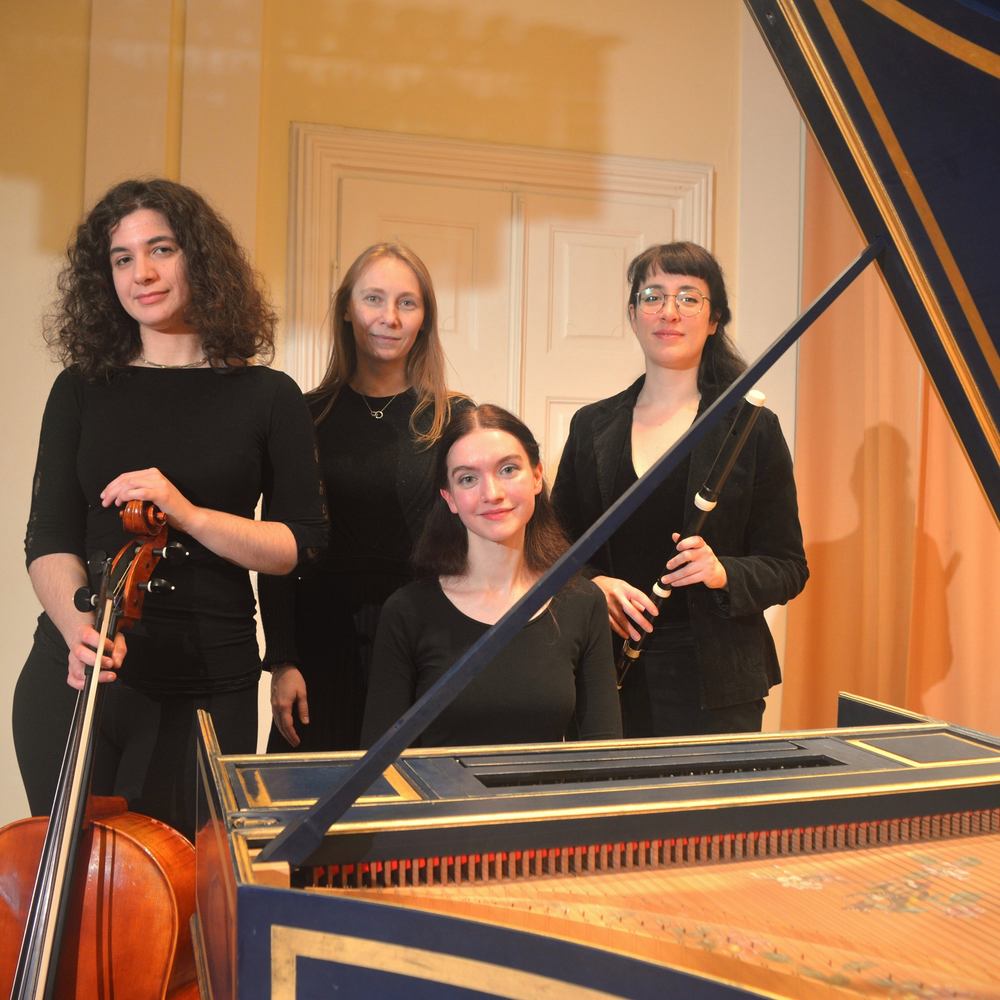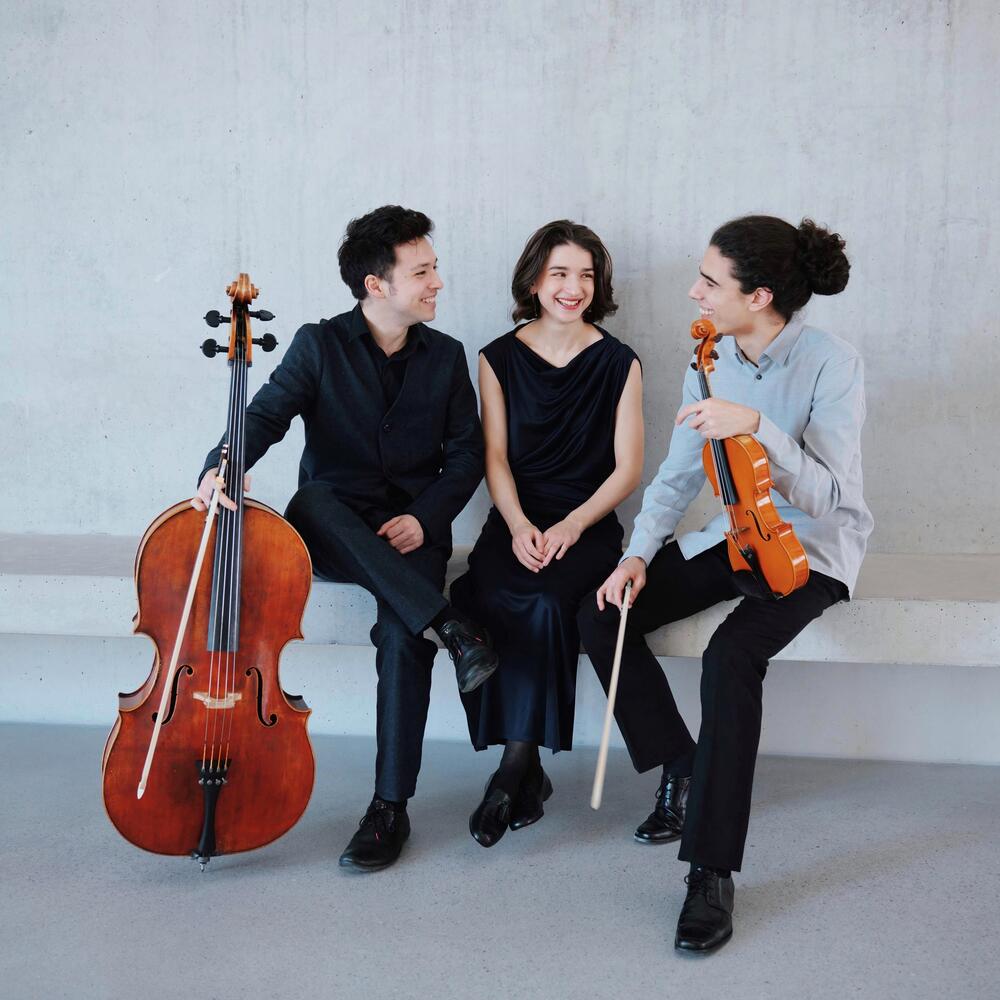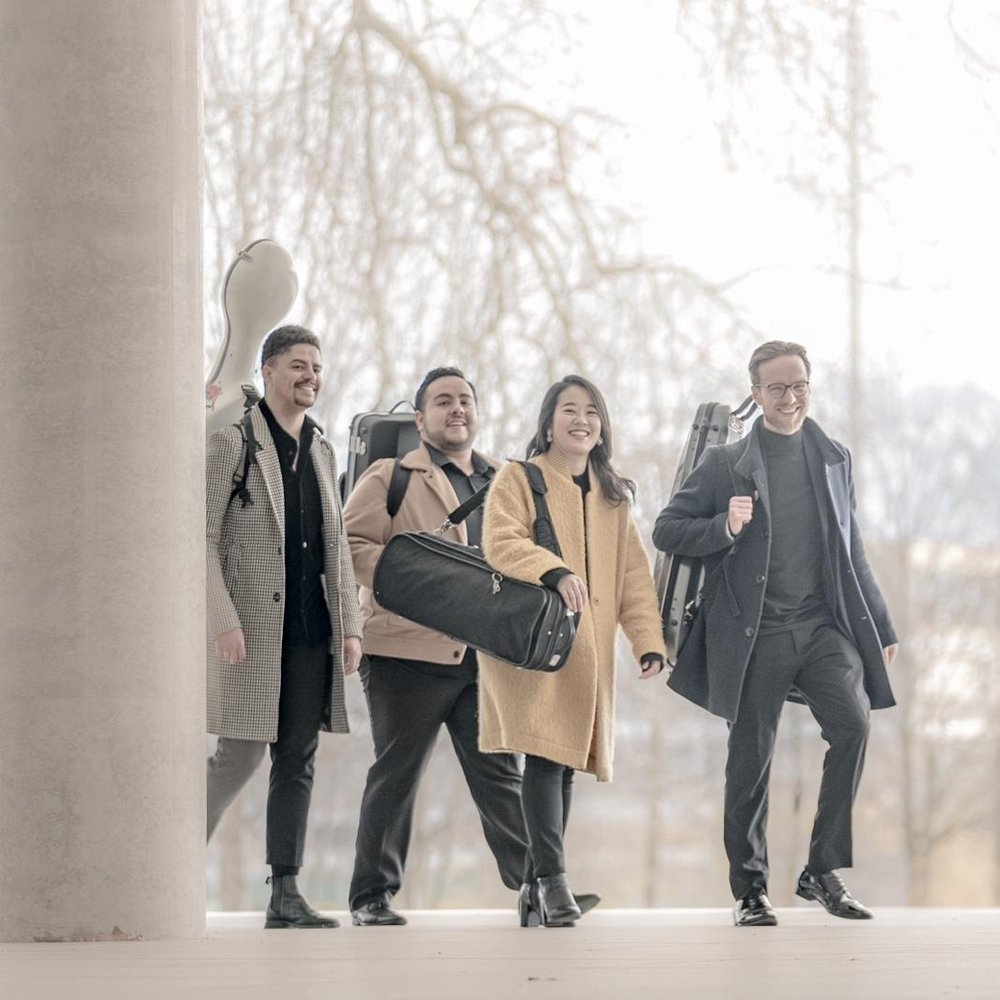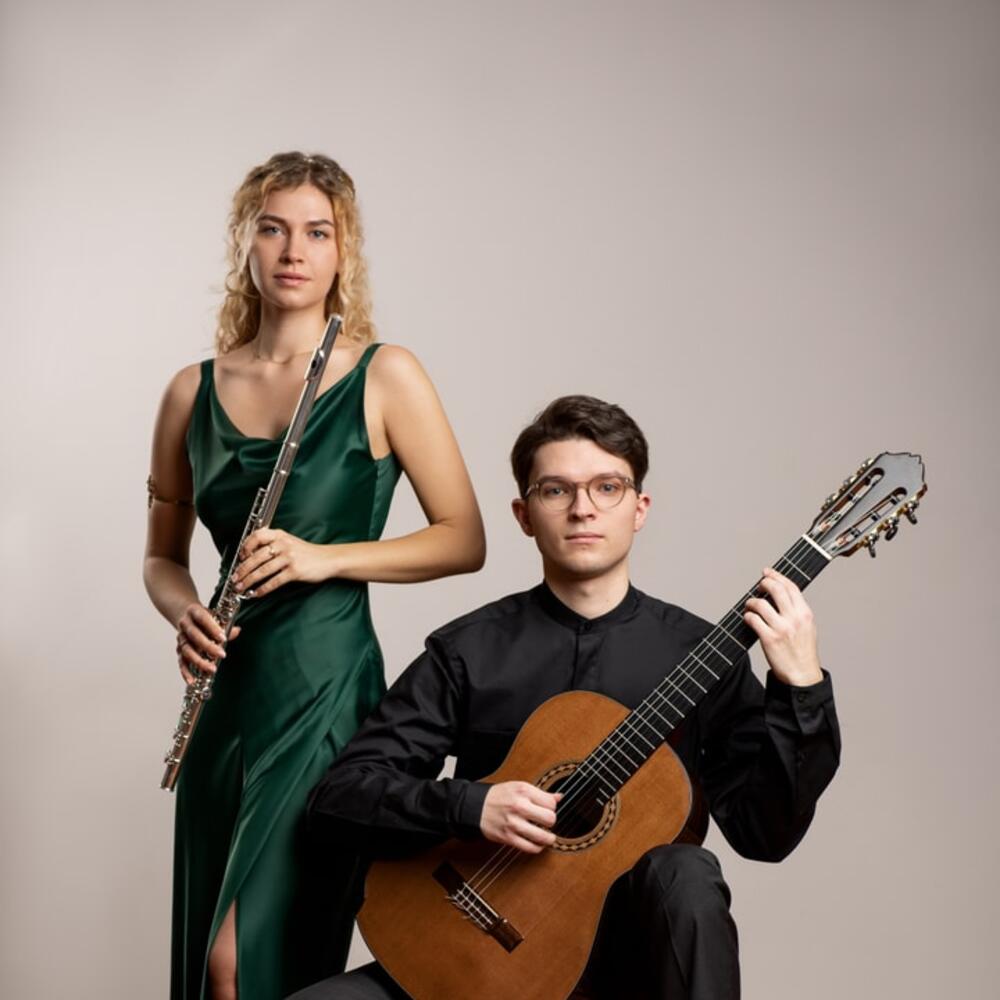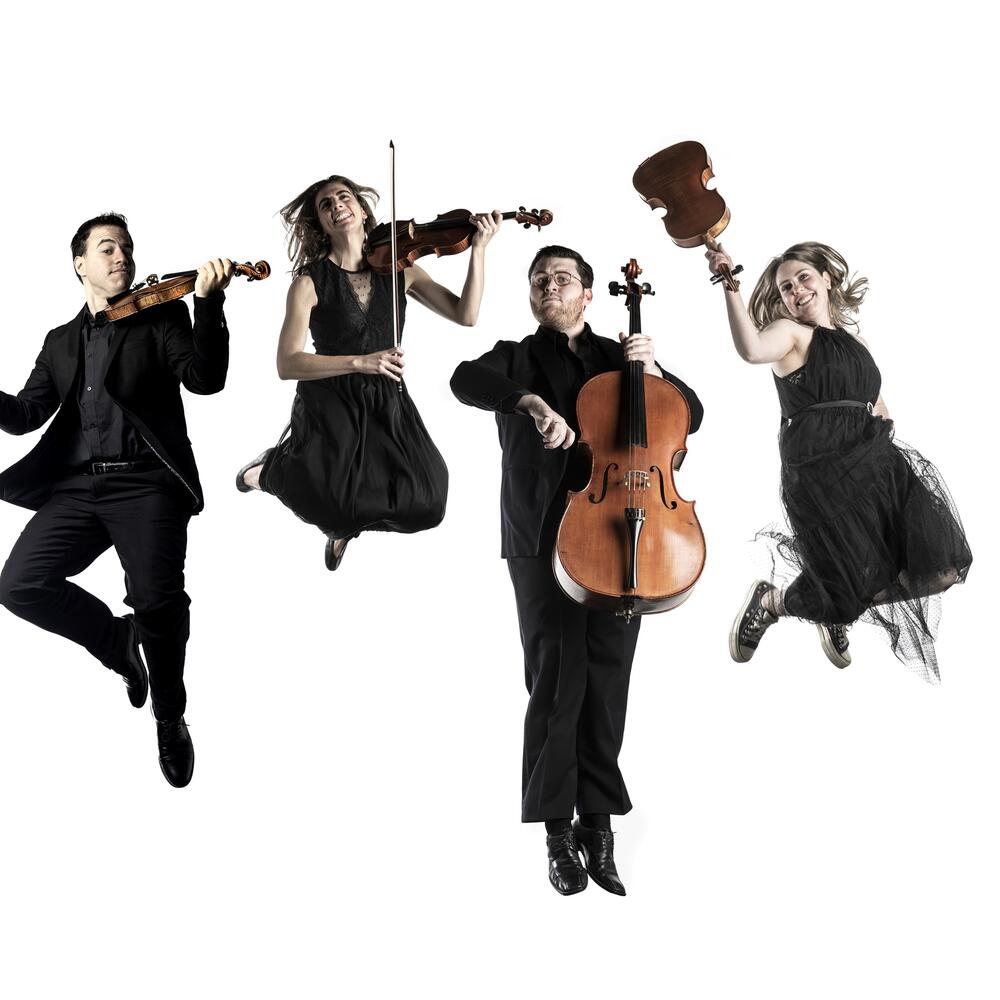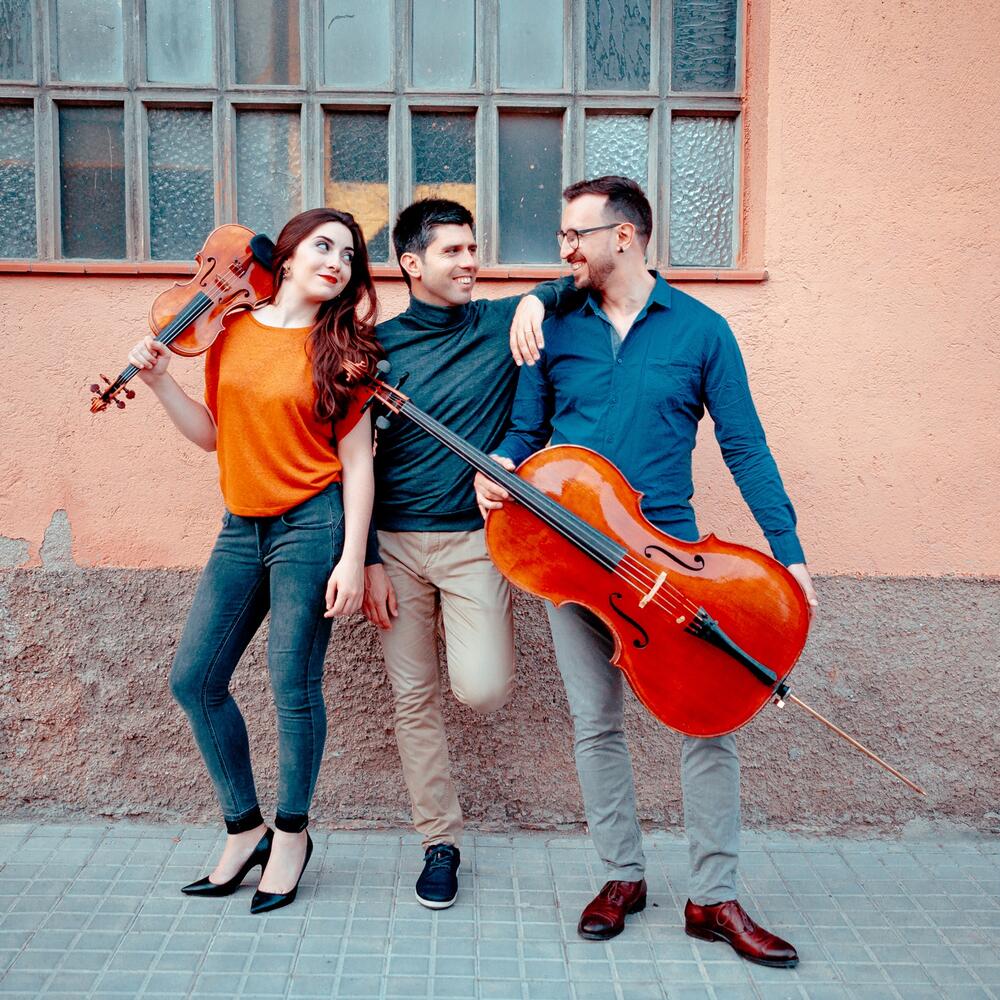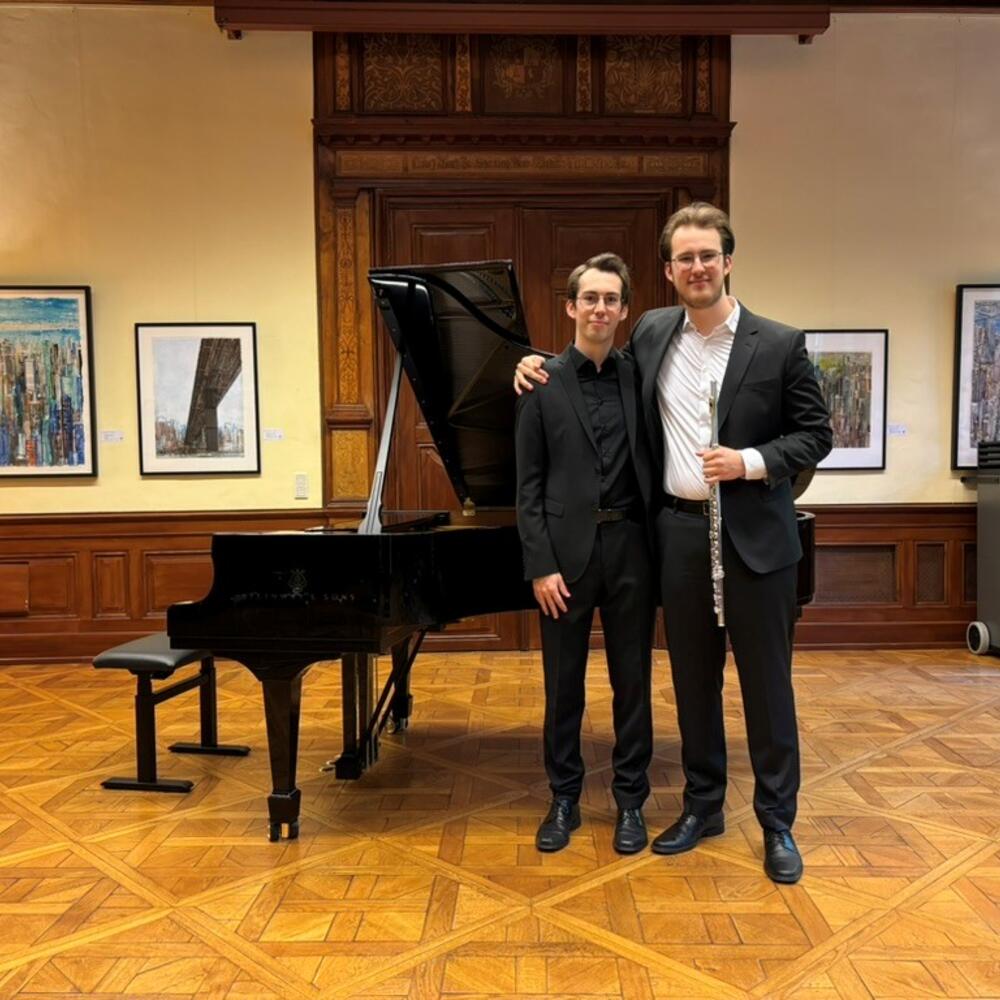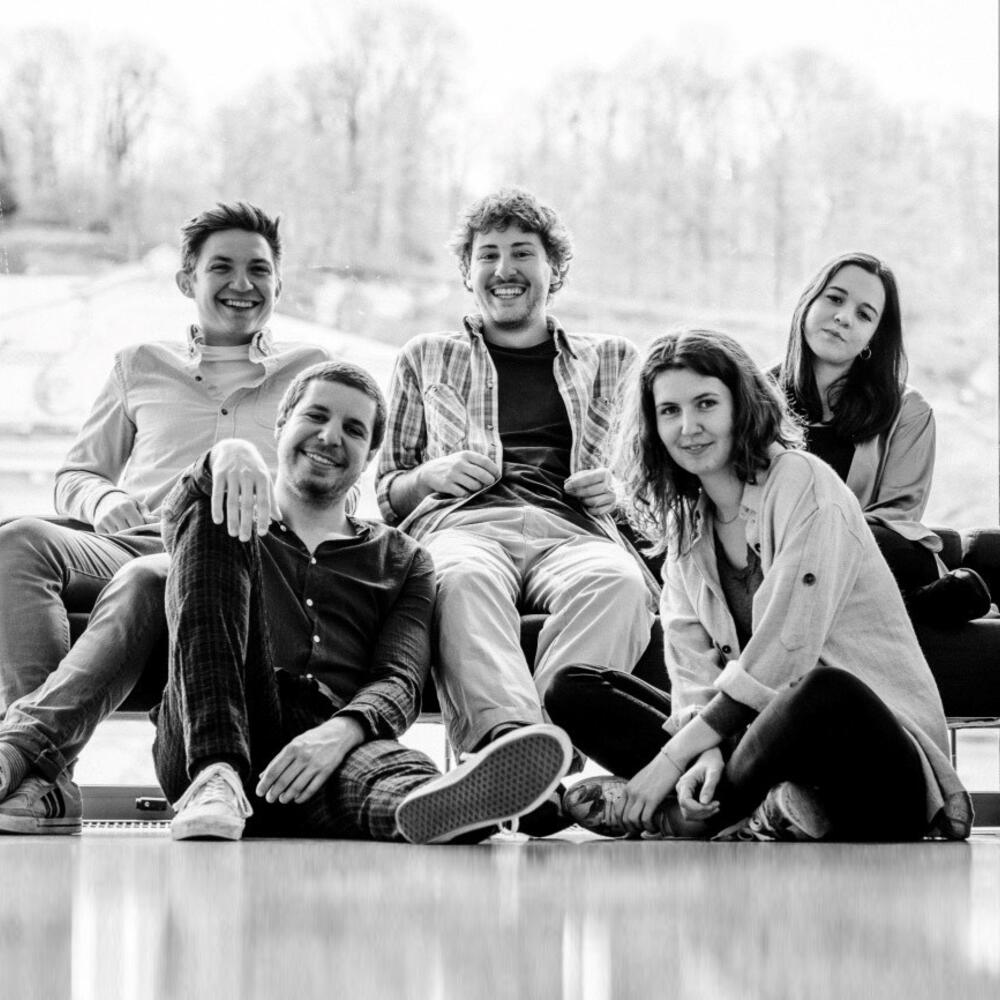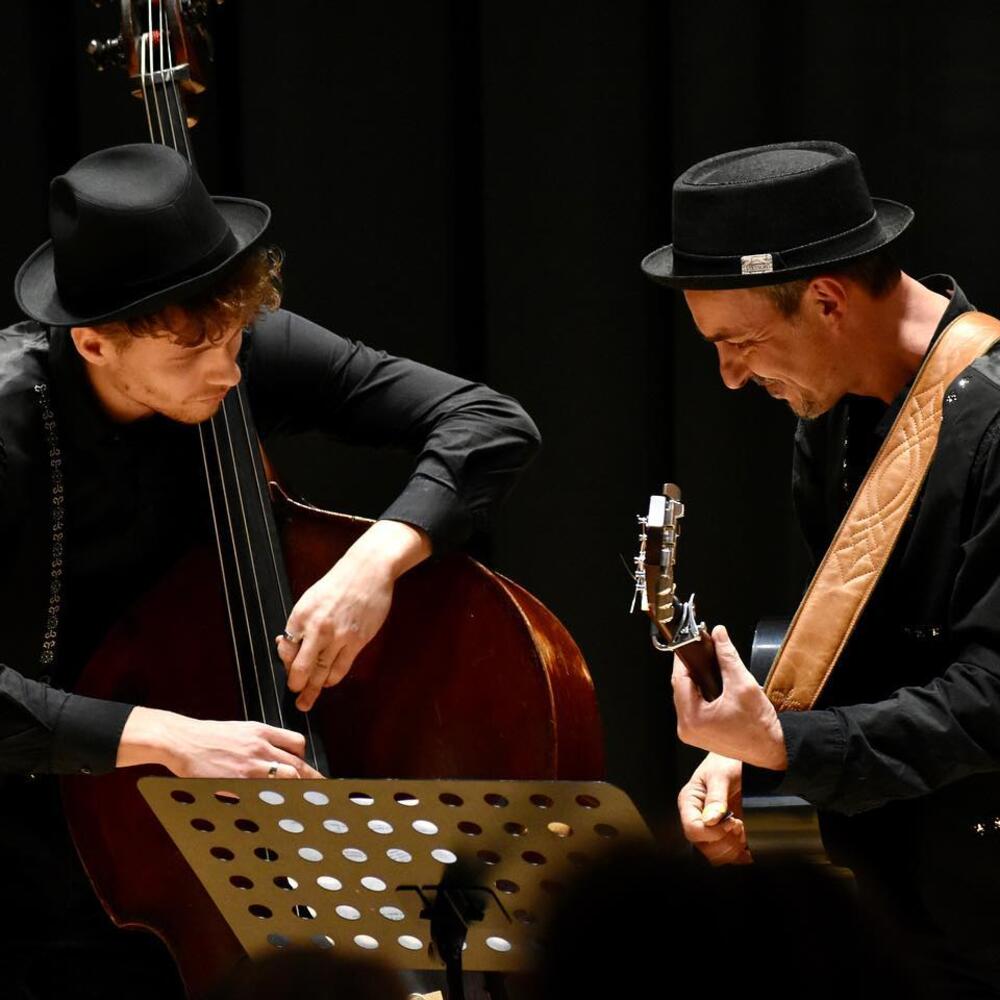
Book your artist!
Are you looking for an artistic/musical setting for your company celebration, birthday or wedding party or another event? The Mozarteum University's Artists' Placement Service offers you the opportunity to find the right artistic performance for your celebration and to book the appropriate ensembles or soloists.
Contact
Franziska Wallner
vermittlungsboerse@moz.ac.at
Links & Downloads
- Booking (via Mail)
- Take part (via Mail)
- Data protection &
AGBs (Students) - Data protection &
AGBs (interested parties)
About
Welcome to the placement exchange for artists at the Mozarteum University. Here students can present their artistic performances and be booked for events.
If you would like to book one of the artists or ensembles, or if you have further questions for us, please contact us via our contact form for booking. Please note our terms and conditions and the data protection information.
We will process your enquiry as quickly as possible and put you in touch with the relevant artists.
Want to take part?
Students who would like to apply for inclusion in our catalogue should register using the contact form for students. All active students of the Mozarteum University can apply. Please note our terms and conditions and the data protection information.
General Information
In the course of the fair pay development, we ask you to deal with this topic in order to negotiate appropriate fees. In order to facilitate negotiations, contractual agreements and settlements, we provide you with links to relevant information here.
- Sample contracts (mica Austria)
- Template for royalty notes (freefinace)
Advocacy organisations in the arts and culture sector have been drawing attention to the difficult situation in the arts and culture industry for years: poor pay, precarious employment and discontinuous working conditions are problems that many arts and culture professionals have to deal with. Periods of unemployment between engagements or projects also mean that an entitlement to unemployment benefit is never realised.
An irregular and unpredictable income also results in a lack of social security in the event of illness and a lack of protection against poverty in old age. A large proportion of artists and cultural professionals live at or below the poverty line, as a study on the social situation of artists and cultural mediators in Austria shows (2018)1.
The demands of the interest groups
IG Kultur Österreich published a Fair Pay Manifesto in 2021, which was developed in cooperation with its more than 800 member initiatives, including the TKI (Tiroler Kulturinitiative). It describes the requirements for fair pay, contains concrete implementation steps and demands for policymakers.
Also in 2021, the Austrian Cultural Council published a Fair Pay Reader together with all cultural interest groups in Austria. For the first time, this provides an overview of all fee and salary recommendations currently available in Austria for the arts and cultural sector.
It also includes the salary scheme of IG Kultur Österreich and the TKI (Tiroler Kulturinitiative) salary scale, which has been in existence since 2009 - one of the first recommendations for fair pay in the cultural sector in Austria.
Moving into politics
The issue has now also reached those responsible for cultural policy: The implementation of a ‘Fair Pay’ strategy by the BMKÖS (Federal Ministry of Arts, Culture, Civil Service and Sport) with the federal states, the Association of Towns and Municipalities, and the interest groups of the cultural sector has begun in order to make payment in the Austrian arts and culture sector fairer. In 2022, the federal government launched a pilot phase on fair pay in the arts and culture sector and made around 6.5 million euros available for earmarked fair pay funds for the first time; in 2023, a total of 9 million euros will be made available for subsidies in the spirit of fair pay.
Solidarity - the responsibility of each individual
However, even if awareness of the problem is increasing in politics and cultural organisations, the salaries are still only guidelines and not legal requirements. The proposed fees are called ‘minimum fee recommendations’ and can serve as a basis for negotiation; however, it is up to each individual to implement them.
It is therefore all the more important that artists and cultural professionals show solidarity and do not practise their art below a certain minimum fee - in the knowledge that they are not only negotiating a current amount for themselves, but also weakening their negotiating position for other colleagues and thus the market in the long term if they are underpaid.
Minimum fee recommendations for the individual art and cultural sectors can be found on the following pages, among others
- Fee schedule 2023 for independent cultural work
- IG Kultur: The current FAIR PAY salary scheme for cultural associations (from 1 January 2023)
- IG freelance musicians: Fee recommendations
- music austria: Minimum fee recommendations for the music sector
- IG visual arts: Guidelines and fee schedule 2023
- IG independent theatre work: Lower fee limit
Basic ideas on fee structure
If you look at the recommended minimum fees, you might initially think that a fee of 350 euros for a single performance lasting one to two hours is already a very high hourly rate. However, if you take a closer look, it quickly becomes clear that the amount of work required to be able to perform at all is many times higher than the pure duration of the performance. Rehearsal and development times, travelling costs, the purchase of appropriate materials, rehearsal rooms, technical equipment, etc. all have to be factored in.
It should also not be forgotten that many artists and cultural professionals work on a freelance or hybrid basis; this means that they do not have a regular income, have to pay taxes and insurance on their own and also have to cover office hours for acquiring orders, bookkeeping and organisation.
In conclusion, it should be said that the fair pay strategy is currently under development. Theory and practice do not always coincide, compromises have to be made in many areas and personal needs must not be disregarded. Society, politics and cultural organisations need time to rethink. But in order to achieve a minimum, a maximum must be demanded and with every discussion, every negotiation and every engagement with this topic, we move closer to the common goal: fair remuneration for artists and cultural professionals.
1 Source: ‘Social situation of artists and art and cultural mediators in Austria’ 2018 An update of the study ‘On the social situation of artists in Austria’ 2008 Petra Wetzel, with the collaboration of Lisa Danzer (L&R Social Research) Veronika Ratzenböck, Anja Lungstraß, Günther Landsteiner (Austrian Cultural Documentation)
Ensembles
Classical
Jazz & Pop
Soloists
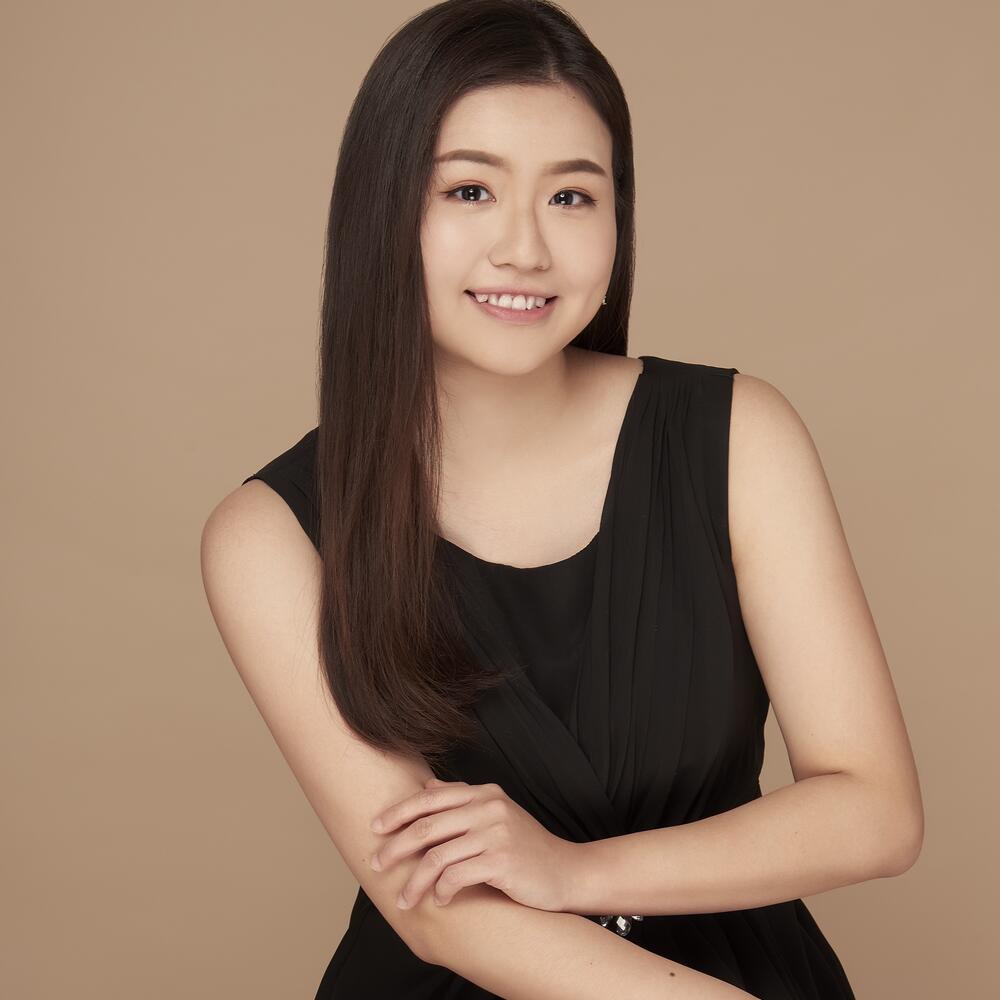
Name: Jou-Yu Shieh
Instrument: Klavier
Jou-Yu Shieh ist eine Pianistin mit einer fundierten Ausbildung und internationalen Erfahrungen. Sie studierte Klavier im Masterprogramm bei Prof. Claudius Tanski an der Universität Mozarteum Salzburg und setzte ihre Studien im Postgraduate Klavier bei Prof. Jacques Rouvier fort. Zusätzlich absolvierte sie die Meisterklasse/Konzertexamen Klavier bei Prof. Wolfgang Manz an der Hochschule für Musik Nürnberg. Derzeit setzt sie ihr Studium in Klavierkammermusik bei Prof. Connie Shih und im MA Lied (Pianist) bei Prof. Pauliina Tukiainen und Prof. Stephan Genz an der Universität Mozarteum Salzburg fort.
Ihre Kammermusikausbildung ergänzte sie mit Kursen bei angesehenen Musikern wie Prof. Andreas Groethuysen, Prof. Cibrán Sierra Vázquez, Prof. Enrico Bronzi, Prof. Thomas Reif und Prof. Marcelo Amaral. Jou-Yu Shieh trat bei verschiedenen Konzerten auf, darunter Kammermusikkonzerte in Salzburg und Nürnberg sowie Klavier-Soloauftritte in Salzburg, Attersee, Nürnberg und Taiwan. Sie spielte als Solistin mit Orchestern wie dem Hfm Nürnberg Symphony Orchestra und dem Shin-Sheng Symphony Orchestra und führte Werke wie das Klavierkonzert Nr. 3 von Beethoven, das Klavierkonzert in a-Moll von Grieg und das Klavierkonzert in d-Moll BWV 1052 von Bach auf.
In Wettbewerben hat sie zahlreiche Auszeichnungen erhalten, darunter den Grand Prix Crown of Stars in Music and Stars Awards, den ersten Preis im Euterpe Music Awards, dem Medici International Music Competition und dem G-Clef Piano Competition. Sie wurde außerdem mit dem zweiten Preis im Franz Liszt Center Piano Competition und dem dritten Preis im Windsor International Piano Competition ausgezeichnet.
Für ihre Studien wurde sie mit Stipendien des DAAD sowie der Universität Mozarteum Salzburg unterstützt. 2025 wird sie ihr erstes Soloalbum „Timeless Elegance" mit KNS Classical veröffentlichen. Sie verfügt über ein vielseitiges Repertoire, das Werke aus der Barockzeit, Klassik, Romantik und Moderne umfasst. Besonders versiert ist sie in der klassischen Musik aus Österreich, Deutschland, Frankreich und den nordischen Ländern. Neben diesen traditionellen Repertoirebereichen widmet sich diese Pianistin auch intensiv der Erkundung verschiedener Musikstile und Besetzungen.
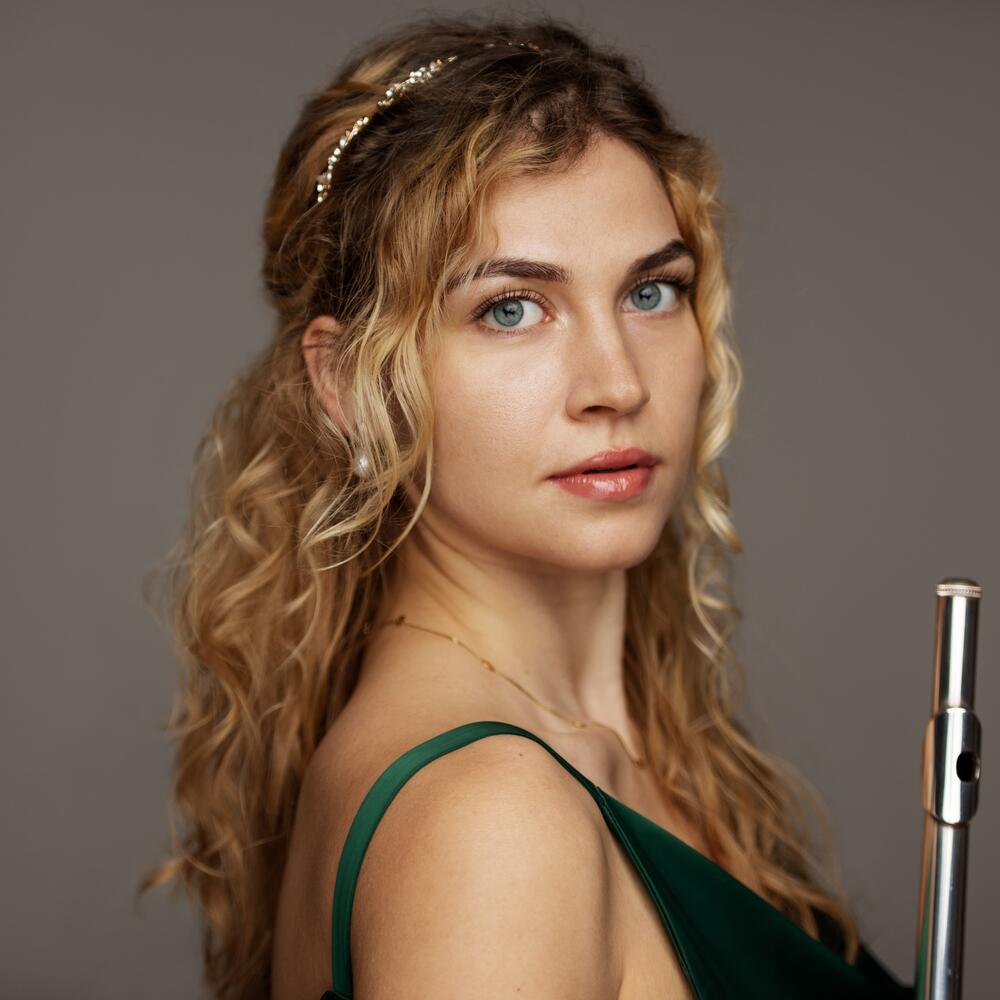
Name: Leona Rajakowitsch
Instrument: Flute
Leona Rajakowitsch, born in Villach in 1999, began playing the flute at the age of 5. When she made her debut in an orchestra at the age of 13 with D. Zanettovich's Concerto for Flute and Strings, the foundation for her musical career was laid. Her desire to pursue her passion for filigree music-making led her to Paolo Taballione at the Mozarteum University, where she began her studies in 2017 and completed her bachelor's degree with honours in 2021. The young flautist is currently completing her master's degree in concert flute.
For the academic year 2023/24, she was accepted into the renowned flute class of Sophie Cherrier with the support of Vincent Lucas at the Paris Conservatoire CNSMDP. Leona pursued her curiosity for different musical expressions in masterclasses and courses with recognised flutists such as Emmanuel Pahud, Philippe Bernold, Gudrun Hinze, Michael Martin Kofler, Walter Auer and Jasmine Choi. She has also received further artistic inspiration for her chamber music work from instrumentalists such as Michel Moragues, Stefan Schilli, Radovan Vlatkovic, Cibràn Sierra-Vasquez and Stephen Fitzpatrick.
Her high regard for contemporary music is reflected in numerous world premieres and compositions written for her. In June 2023, she played the work ‘postcards’ by French composer Henry Fourès as part of a portrait concert in honour of the composer. The Austrian flautist, winner of the Bruno Gironcoli Prize, is characterised by a broad spectrum of tonal colours and a great willingness to experiment. She loves to create new concert formats and collaborates with various artists from different disciplines and artistic fields.

Name: Lucas Biegel
Instrument: Recorder
Lucas Biegel is currently studying recorder in the concert class of Dorothee Oberlinger, Matthijs Lunenburg and Olga Watts at the Mozarteum University in Salzburg. Concert engagements have taken him to the Innsbruck Festival of Early Music (AT) and the Handel Festival Halle (DE), among others. He has also performed at the Liebenberg Flute Festival (DE), the Menuhin Festival Gstaad (CH), the Miszla Baroque Academy (HU), the Forum Alte Musik Sankt Gerold in Feldkirch (AT) and the Schwetzingen Winter Festival (DE). In February 2020 he was a finalist at the third Tel Aviv International Recorder Competition (IL) and in March 2024 at the German Music Competition in Bonn. From 2016 to 2022, he studied school music with recorder as his main subject at the Felix Mendelssohn Bartholdy Academy of Music and Theatre in Leipzig. He received recorder lessons from Anna Januj, Sheng-Fang Chiu and Prof. Robert Ehrlich. He was a member of the Leipzig Gewandhaus Choir, has been a scholarship holder of the German National Academic Foundation since 2016 and received the PROMOS scholarship from the German Academic Exchange Service in 2018. He has honed his musical precision on the recorder in masterclasses with Erik Bosgraaf, Maurice Steger and Michael Form, among others.
Lucas Biegel loves the versatility of the recorder and expresses this through his mastery of various styles from the Renaissance to contemporary music. From solo performances of baroque and contemporary works to chamber music ensembles and orchestral arrangements, he masters the entire range of recorder literature and is also prepared to experiment with sounds and works outside the classical framework.
